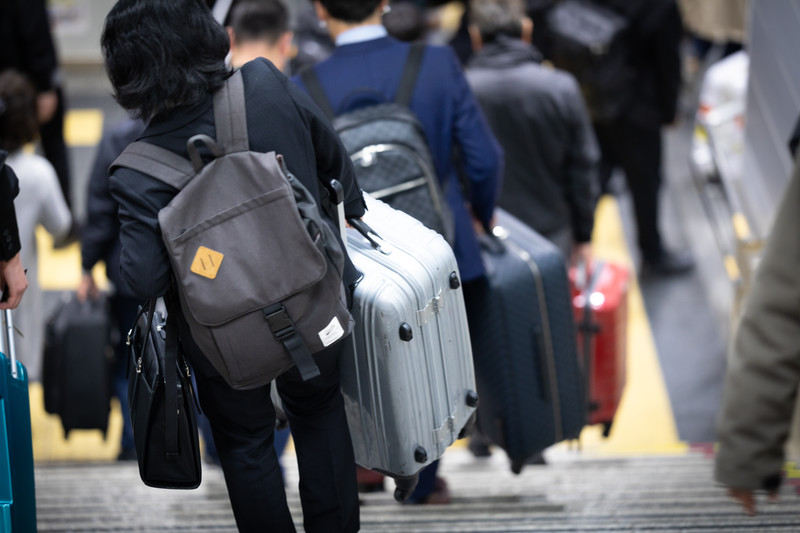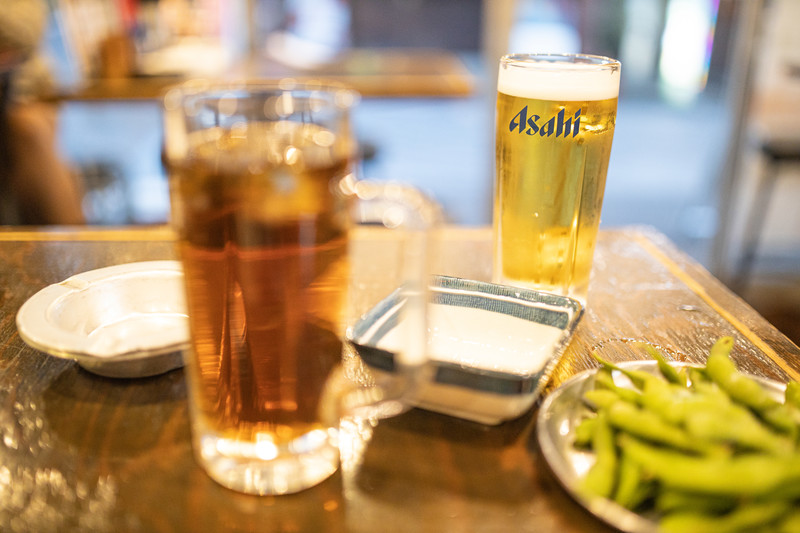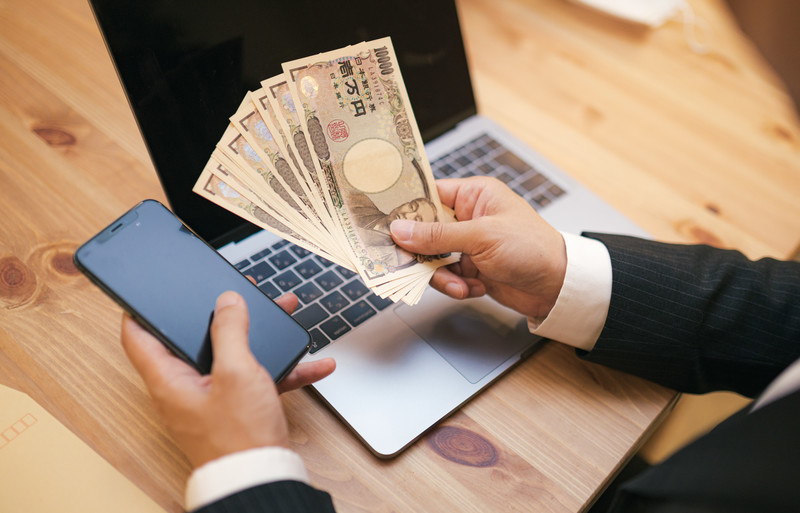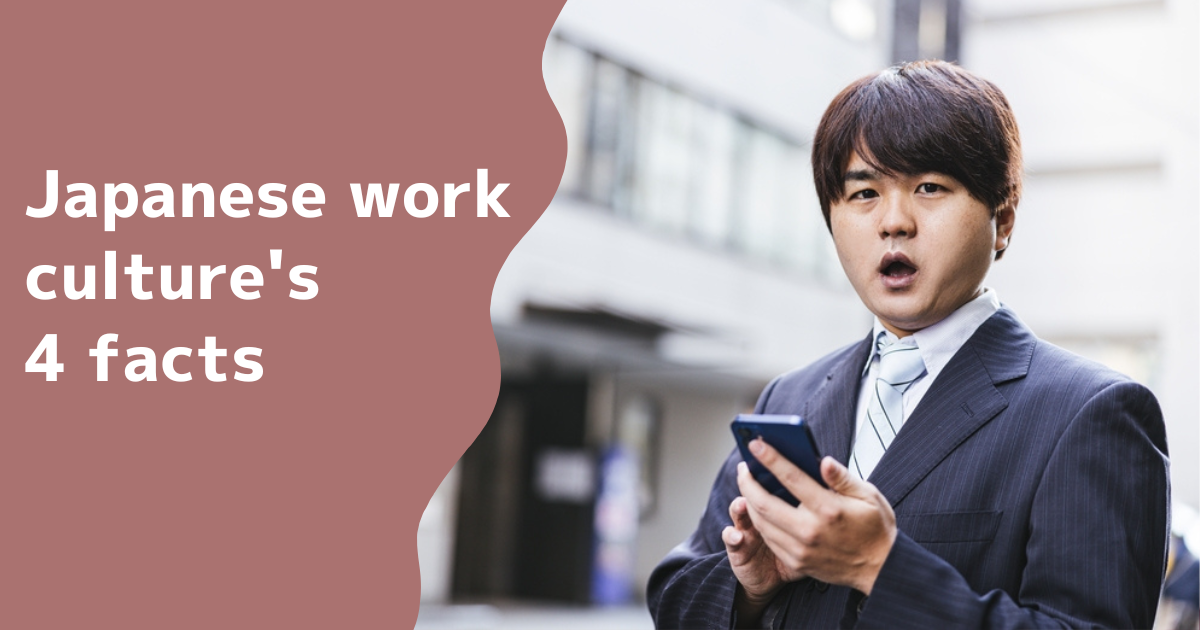When you have possibility to work in Japan or Japanese based company in your country you might be wondering what Japanese work culture is?
If it is so, you could also be worried about possibility of overtime work or any bad side of Japanese company’s environment.
In fact, “Karoushi (overwork death)” became huge social issue in Japan recently and Japanese people work hard comparing other counties people and we are required to have loyalty to their belonging companies.
You might be concerned about such as below 4 matters regarding Japanese work culture and I’d like to explain the facts of each.
- Overtime work
- Annual leave usage
- Drinking with coworkers
- Income increasing system
After reading my blog, I hope you well understand what actually happens usually in Japanese companies and prepare psychologically working there.

Let me introduce about myself.
I am Hiro from Tokyo, Japan, born and raised here.
I have working experience in Japanese companies (logistics and manufacturing) as an international sales for almost 10 years, so I well understand Japanese people’s work culture.
Fact 1 Overtime work

You may have stereotypical image that Japanese people often overwork. What about actual overtime work situation in Japan?
Average overtime work per month in Japan
In fact, average overtime work in Japan is 22 hours per month in 2022 according to Doda, Japanese famous recruitment company website (I am afraid it is Japanese website).

22 hours per month means approximately 1 hour overwork per day.
(If Saturday, Sunday and public holiday is deducted, around 20 days is the working day in Japan in one month and 22 hours can be divided to 20 days to be approximately 1.1 hour per day)
Japanese companies typical working hours is from 8:30 (or 9:00) to 17:30 (or 18:00), so 1 hour overtime work means that majority of Japanese people finish work at around 18:30 or 19:00 (1 hour overtime work).

Comparing to your country, is actual Japanese working time longer or shorter?
Of course, it depends on types of job you are engaging to.
For example, I am a international sales person in manufacturing company and I finish work around 18:00 everyday (10 hours overtime work per a month) which is less than average described above.
Which types of job overly worked
According to the same Doda website, little overtime work jobs listed are as follows.
- Secretary/Receptionist (10 hours)*overtime work per month
- Beauty related jobs (10.4 hours)
- Sales assistant (11 hours)
In contrast much overtime work jobs listed are as follows.
- Producer/Director/Planner for publishing, advertising, Web or film (37.1 hours)
- Business consultant (37.1 hours)
- Construction management (35.3 hours)
There are various types of Japanese companies and you may also choose little overtime work company for your work life balance.
To choose those company, please carefully check job posting and internet information, which provide you the information of overtime work situation of each company before applying for job interview.
Overtime work to help other coworkers finish work
Some companies supervisors/seniors don’t allow subordinates to finish work until your supervisors/seniors finish work. (It depends on company culture though)
Teamwork is too much considered in some Japanese companies.
When I was in a logistic company in Japan (my first belonging company) and when I finished my work after regular working hour I must ask my supervisor or seniors whether I should help their work to be finished.
The asking was part of the company culture and as a result all the workers couldn’t finish work till about 8pm even though regular working hour was till 5:30pm.
Fact 2 Annual leave usage

Japanese people tend to take less annual leaves.
Based on pole done by travel agent Expedia (Referring to below Japanese website), annual leave usage in Japan was round 50% till 2020 and more than half of the annual leaves left was not fully used.
In Japanese working place, taking annual leave is considered to be negative thing and we have kind of guilty of taking annual leave in our mind and some workers even bring souvenirs to give to their coworkers to show gratitude for letting them take annual leave.
If you won’t take given annual leaves (Usually 10-20 days received per year) in a certain period the annual leaves are expired, so a lot of them are wasted.
We all forget taking annual leave was kind of employees rights.
From 2019, Japanese government started regulation that all the Japanese companies must let employees have at least 5 times annual leave per year, otherwise the companies get punished.

I feel like my company’s workers gradually think positively taking annual leave after this regulation is started.
Fact 3 Drinking with coworkers

You might have image that Japanese people often drink with coworkers.
It used to be part of important culture in Japan drinking with coworkers to build relationship but it has been changed gradually.
Due to COVID-19 situation and Japanese economy stagnant for many years, workers less likely to drink together after work nowadays.
However, if your supervisor or senior loves drinking with coworkers, you are likely to be invited many times. (and it is kind of awkward if you refuse many times)
In my belonging company, my senior used to love drinking, so I was asked to drink many times and I often joined, but after the senior moved to another department, I had less opportunity to be invited to drink by anybody in my company.
Fact 4 Income increasing system (seniority wage system)

Income increasing system is quite distinctive in Japan,
Usually most of Japanese companies adapt seniority wage system and income level is getting higher if you work many years.
Income level is slightly based on sales performance of each year as well but long years workers usually receive more income comparing to good sales performance workers who started working less than 3 years.
In my company in Japan, monthly income is increasing around 6,000 yen to 12,000 yen (US$44 to 88) every year (depending on last year’s sales performance). Also my sales performance in 2022 was 150 percent increased compared with previous year but that performance was not much reflected to my income in 2023 instantly, just monthly income was slightly improved.

It is a little difficult to keep high motivation if sales performance is not fully reflected to my income. Of course the income levels keep stable even if it is poor performance and it could be a good part of this system as well.
Conclusion
I explained important 4 facts about working in Japan
and hope you well understand about companies in Japan or Japanese based companies in your country before working there.
Thank you for reading my article till the end.



コメント Comment